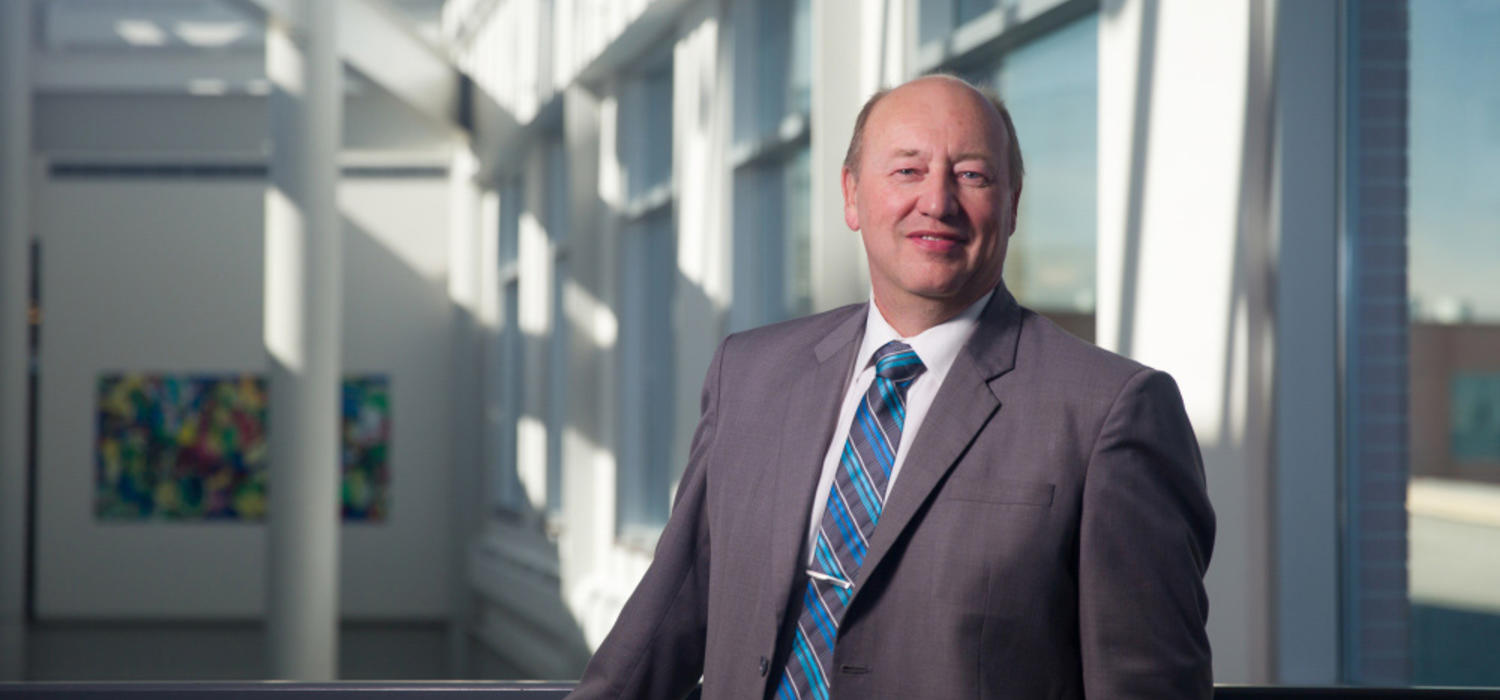Nov. 27, 2018
Faculty of Social Work steps up its recognition game

What does it take to build a strong culture of recognition in the workplace? Over the past five years, the Faculty of Social Work at the University of Calgary seems to have found the right mix: a combination of deliberate actions, formal initiatives, leadership support, and a whole lot of good vibes.
Between 2013 and 2017, the Faculty of Social Work’s respect and recognition scores on the employee survey rose by 16 per cent — an impressive improvement, especially considering that faculty and staff members are working in separate locations throughout Calgary and Alberta.
“It’s not only that we’re dispersed geographically,” says Dr. Jackie Sieppert, dean of the Faculty of Social Work. “We’re also dispersed in the roles that people play and their different passions and interests — we have to support these all at one time.”
The faculty’s track record illustrates how a blend of new approaches to recognition, more traditional methods, and a sensitivity seizing key opportunities, can make a lasting difference.
Recognition at every level, for everyone
Recognition happens at every level, but before it becomes woven into a workplace culture, leadership needs to support it from the top down. UCalgary’s recognition program began with the Eyes High strategy and its goal to increase respect and recognition on campus and build a strong culture of recognition. From there, a formal recognition strategy was developed and adopted, and countless employee recognition initiatives have been launched since.
Sieppert says this kind of strong direction from the institution helps his team make strides toward a more positive culture.
“I’m grateful that the university has focused on recognition and culture, and that we have a responsive middle layer of leaders ready to accept and advance that focus,” he says. “Without support at that layer of an organization, these things stall and don't go anywhere.”
Making recognition a habit — informal recognition
Theresa Eng, manager of administrative services in Social Work, member of both the Recognition Steering Committee and the Employee Recognition Champions Network and 2017 U Make a difference award recipient, says Sieppert supports all the recognition initiatives spearheaded by Social Work’s recognition committee.
On top of implementing tried-and-true initiatives such as milestone and birthday celebrations, the committee has created new ways to promote recognition. They recently used the Faculty of Social Work convocation ceremonies as a recognition opportunity by helping the grads send notes to faculty members.
Eng says UCalgary’s recognition program — which motivated the creation of recognition committees across campus — has made a significant impact on the culture in her faculty.
“The work of the committee has greatly impacted our respect and recognition driver scores,” says Eng. “Everybody defines recognition differently, but the website and the cards and other physical items have made recognition a more standard and understood part of our system.”
Celebrating the big stuff — formal recognition
There are many formal recognition programs at UCalgary that provide opportunities for the UCalgary community to nominate individuals and groups for awards and acknowledgements. These opportunities exist at an institutional level and within various faculties and portfolios.
Sieppert believes in the power of formal recognition as a way to share and celebrate career achievements and milestones.
“Formal recognition is really important,” says Sieppert. “It signals a very public recognition and is often tied to a specific initiative or project. For many people, it comes at significant moments in their career — letting those achievements slip by without recognition can be devaluing.”
In the last year, Sieppert was himself formally recognized for his contributions as the co-chair on the working group for ii'taa'poh'to'p. He and fellow co-chair Shawna Cunningham, director of ii'taa'poh'to'p, received U Make a Difference Awards and were inducted into the Order of the University of Calgary at the fall 2018 convocation ceremonies.
Promote recognition in your faculty or department
Visit the recognition website for the recognition strategy, a recognition toolkit, and information about eNotes and print cards. Do you have a great idea to enhance recognition at UCalgary? Email recognition@ucalgary.ca.
Recognition and Reward is one of the 13 factors illustrated in the National Standard. The University of Calgary is a recipient of the Excellence Canada Mental Health at Work Silver Level Certification in this area. Visit WellBeing and WorkLife to learn more about the implementation of the National Standard at the University of Calgary and to learn about existing programs and resources that support each of the 13 Factors.
